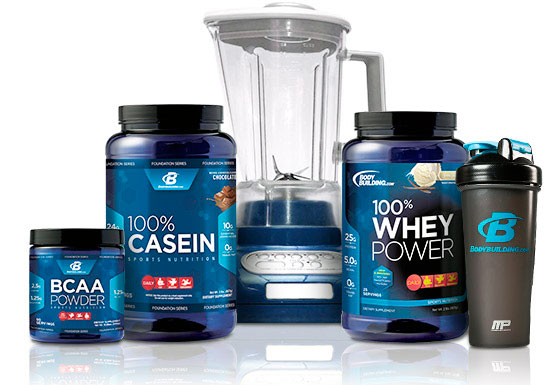Casein protein: benefits and harms, instructions for a beginner
Casein is not as popular a protein as whey, but for good reason. If casein protein were working out in the gym, you'd probably find it hedging whey on the bench press. Casein has long been looked upon as a less attractive substitute for whey protein, with casein being the Columbo of the protein world and whey being the Schwarzenegger.
But not today.
Here we will take a closer look at a curious substance - casein protein. Step into a courtroom and hear how casein works and how it can help you achieve your goals.
“Casein’s unique ability to gel has made it an important part of the cheese-making process.”
Casein protein, like whey protein, is obtained from cow's milk. It contains about 80% casein, the remaining 20% is whey protein. Casein is an insoluble substance, that is, it is a solid protein in milk.
You may have heard it in the context of calcium caseinate, which binds calcium ions in a protein structure. (If any gym regular asks you, now you can tell him).
In addition to being used as an excipient, casein's unique ability to gel has made it a binder, filler, and one of the most important ingredients in cheese making. Interestingly, due to its ability to form jelly, casein is used in the production of plastics and glue.
But don't run for a tube of glue. Casein supplements are a more effective way to get the protein you need.
Casein supplements
Casein's ability to gel and coagulate makes it a unique component in a variety of protein supplements. During the digestion of food in the stomach, casein coagulates. The rate of digestion is reduced, allowing protein amino acids to be used more slowly and efficiently. (Amino acids are the building blocks of proteins.)
Essentially this means that your muscles are fueled for a longer period of time.
Slow digestion of food is beneficial because it reduces the rate of protein breakdown and amino acid oxidation. (Burning amino acids provides energy). Casein can even provide a feeling of fullness, meaning you feel like your stomach is full without having to actually fill it.
Casein and whey
Casein is slow to digest, but it is a double-edged sword, especially compared to whey. Pros: Casein's ability to slow metabolism increases the time it takes for amino acids to be released into muscle tissue and provides more stable nitrogen levels. (Good nitrogen balance is important for muscle building).
However, the slow release of amino acids from casein reduces the maximum anabolic process in the body. This means that casein may not activate muscle protein synthesis as quickly as whey does. If we compare a gram of casein to a gram of whey, we see that casein is less anabolic because it is digested more slowly.
In addition, casein protein contains less leucine (8%) than whey protein (11%). Leucine is an amino acid that is responsible for maximizing the anabolic response during protein intake. Leucine signals the body to synthesize protein and build muscle.
In my PhD thesis, I showed that the anabolic response to food is closely related to the leucine content of the food. Casein contains less leucine than whey, so it does not enhance protein synthesis as much.
Casein and whey:
As stated earlier, casein does not provide the same high anabolic effect as whey protein, but it does provide a more consistent supply of amino acids. To enhance this effect and get both benefits, it is worth combining casein with a fast-digesting protein like whey. Thanks to this, you will benefit from high levels of leucine, as well as a constant supply of amino acids.
Making a protein shake will allow you to gain the benefits of casein while avoiding its disadvantages. As an alternative, you can combine casein with fast-absorbing forms of BCAA or leucine to achieve a similar effect.

A protein shake will allow you to get the valuable substances of casein and at the same time improve it and compensate for some of the shortcomings.
How to take casein protein
Casein itself can be consumed by those who want to increase their daily protein intake. It can be a great solution for those who are allergic to whey or egg protein.
Like whey, casein is easy to use and can be consumed at any time of the day. However, due to its slow absorption and prolonged release of amino acids, it is usually taken when a person may have to go without food for an extended period of time.
Because of this, many people choose to consume casein before bed because they believe the slow-digesting protein will help prevent catabolism. Meanwhile, consuming casein at night has received little research, but it has been shown to reduce the rate of protein breakdown and therefore may be beneficial.
The amount of casein required for each individual is determined by several factors, such as weight, total protein intake, and whether you take casein alone or in combination with other protein sources.
Because of this, if you consume casein in its pure form, you may benefit from increasing your servings to speed up the anabolic reactions. I would recommend 40-50 grams of casein protein (as long as you consume it in its pure form) for a 90 pound male bodybuilder who wants to build muscle mass.
Buying casein
Keep in mind that many companies make protein shakes with casein and whey. Since these blends are usually more expensive, you can make your own shake with whey and casein. Please do not add liquor. (If you still want, add vodka).
Safety comes first
Some people may be allergic to casein protein. They may experience side effects such as stomach upset, pain, diarrhea, vomiting and other gastrointestinal problems.
In addition, consuming casein in large quantities can cause gastrointestinal upset even in non-allergy sufferers. Casein has the ability to take on a jelly-like form, which can lead to bloating and discomfort if taken in large doses, especially to people around you.
What's the moral in this whole story? Do not take casein if you are allergic to it or if your doctor does not recommend consuming casein. You should not consume it in large quantities - there is a risk of feeling like the Marshmallow Man from Ghostbusters.
Casein: case closed
Casein protein usually works at night. People take it before bed, it gets absorbed overnight and then disappears when the whey comes to the fore.
Use casein when you need a slow-release protein source. Take it when your muscles are hungry. Take it with whey protein if you want to get more of the nutrients.
For the above reasons, take it regularly.
Based on materials:
http://www.bodybuilding.com/fun/the-case-for-casein.html
0Reader rating: Be the first! 0





